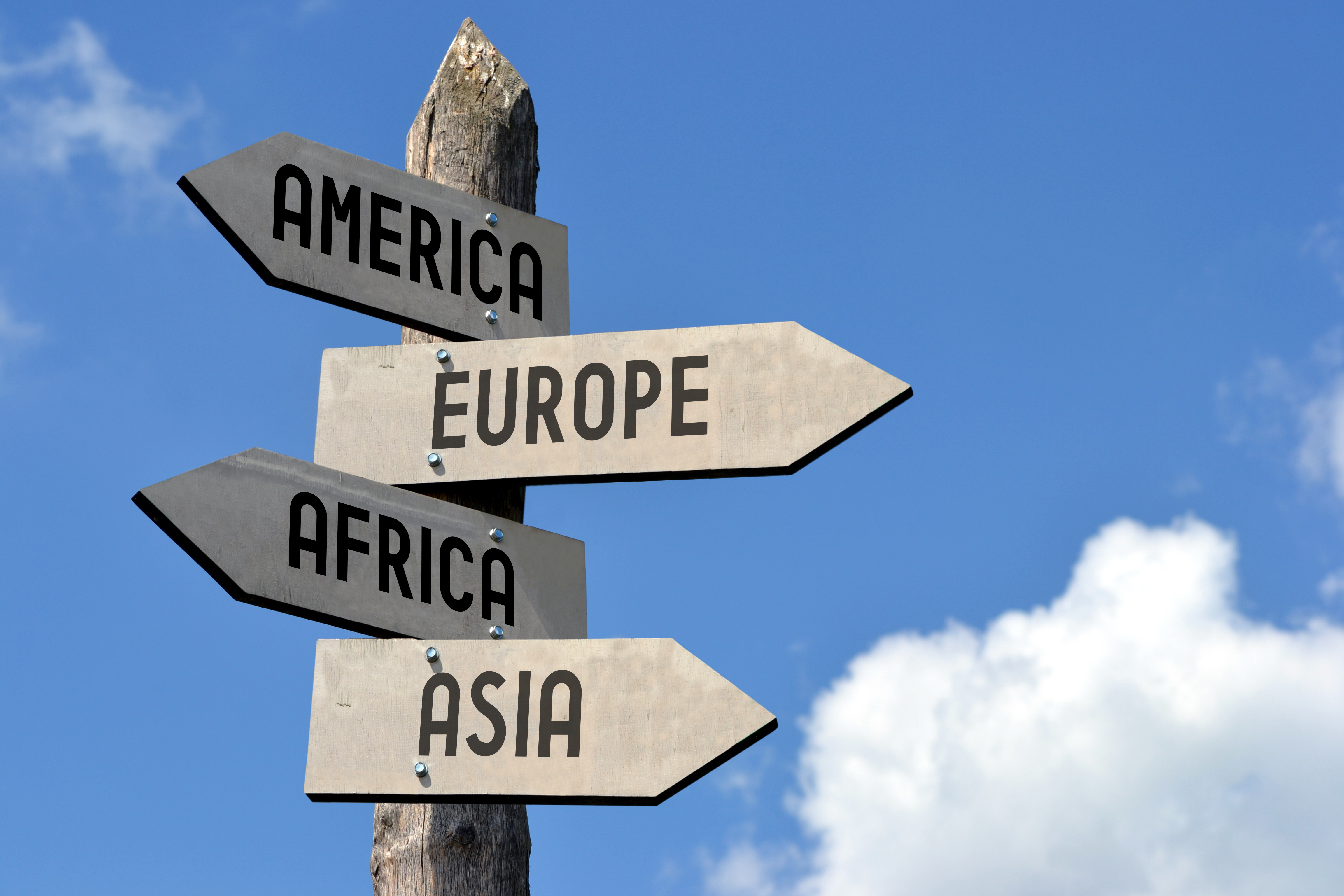Africa At A Crossroads
Africa’s growing geo-political influence

America, Europe, Africa, Asia signpost
© Shutterstock"The United States is all in on Africa, and all in with Africa,” declared U.S. Treasury Secretary Janet Yellen in January as she embarked on a three-nation diplomatic visit of the continent. Her trip began just a few days after Chinese Foreign Minister Qin Gang wrapped up his own whistle-stop tour of Africa, which took him to Ethiopia, Gabon, Benin, Angola and Egypt. And three days after Yellen arrived in Senegal, Russian Foreign Minister Sergei Lavrov touched down in South Africa, the first of seven African countries he would visit over the next two weeks.
These three back-to-back visits by major world powers to Africa ahead of February’s African Union Summit follow a flurry of important diplomatic visits in 2022, including by German Chancellor Olaf Scholz and French President Emmanuel Macron. Together, they signal attention to Africa’s rising political and economic bargaining power globally, which has been brought into sharp focus by the Russian war in Ukraine. “It’s a sign of increased attention to the continent,” says Steven Gruzd, head of the Africa – Russia Project at the South African Institute of International Affairs. “It’s a battle for hearts and minds.”
During their recent visits, Yellen, Gang, and Lavrov all went to great lengths to emphasize that their country’s interest in Africa was not simply a matter of short term economic or political gain. “Africa should be a big stage for the international cooperation, not an arena for major-force rivalry,” Qin declared in Addis Ababa, Ethiopia. "Our engagement is not transactional, it's not for show, and it's not for the short-term,” Yellen explained in Dakar, Senegal. “Good relations…are not subject to geo-political events, they are historic and based on a spirit of solidarity and support,” Lavrov said from Luanda, the capital of Angola.
But the visits were also heavily strategic. Africa is a continent of young countries and shifting spheres of influence, experts note, where diplomatic relations are often more moldable than in other parts of the world. This has been particularly significant for Moscow as it has sought to shore up global support for its invasion of Ukraine over the past year. “Lavrov has taken three trips [to Africa] in the past six months,” Gruzd notes. “It signals that African votes in the UN General Assembly are important, and the support of African countries is important.”
For European countries like France and Germany then, visits to Africa have been in part about countering that influence, and attempting to align countries in the region with their own attempts to end the Russian occupation. “It is necessary for peace in the world that this war stops, as soon as possible and that there is a chance to defend the integrity and sovereignty of Ukraine,” Chancellor Scholz explained last May during his visit to South Africa. And Macron dubbed Russia “one of the last imperial colonial powers” during his visit to Cameroon, Benin, and Guinea-Bissau in August.
For many African countries, however, the war in Ukraine has been a geopolitical space in which they can flex their diplomatic independence from the Western world. For instance, when the UN General Assembly voted in October on a resolution condemning Russia’s planned referendums in occupied portions of eastern Ukraine, 19 of the 35 countries that abstained were in Africa. One of these countries was South Africa, which is currently hosting the Russian and Chinese Navies in a series of military drills off its east coast near the city of Durban.
“It is a way of South Africa saying we have an independent foreign policy,” Gruzd says. “We won’t be bullied by anyone else. We will choose who we collaborate and cooperate with at a time of our choosing.”
